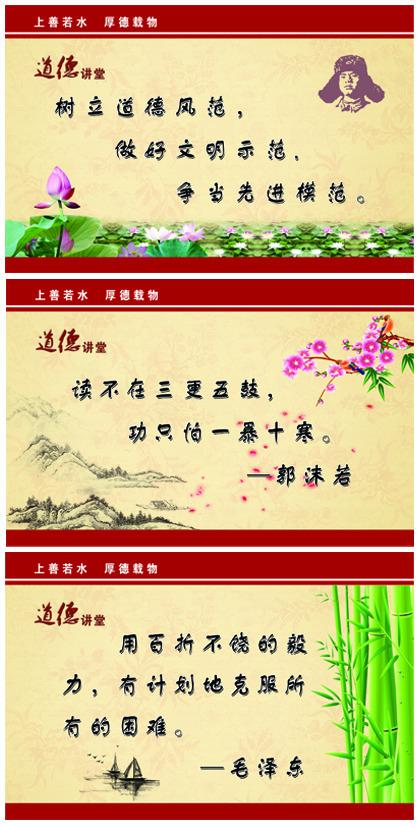
 Module 8 Time off
Module 8 Time off一.重点单词和短语
1. | hardly [ˈhɑ:dli] | 几乎不;几乎没有 | 10. | shape [ʃeɪp] | 外形;形状 |
2. | take up | 占去(时间或空间) | 11. | human ['hju:mən] | 人 |
3. | point out [pɔɪnt] | 指出;指明 | 12. | wake [weɪk] | 唤醒;醒来 |
4. | sights [saɪts] | 【用复数】风景;名胜 | 13. | wake sb. up | 唤醒某人 |
5. | thirsty ['θɜ:stɪ] | 渴的 | 14. | somebody ['sʌmbədɪ] | 某人;有人 |
6. | at the top of | 在…的顶端 | 15. | about [ə'baʊt] | 向四周;几各处 |
7. | waste [weɪst] | 浪费;滥用;浪费(n.) | 16. | path [pɑ:θ] | 小路 |
8. | square [skweə(r)] | (表示面积单位)平方的 | 17. | pull [pʊl] | 拉;牵;扯 |
9. | kilometre [ˈkɪləmi:tə(r)] | 千米;公里 | 18. | freshwater ['freʃwɔ:tə(r)] | 淡水的 |
| | | | | |
二.语法回顾
宾语从句(一)
宾语是句子的一个重要成分,它可以由名词、代词、名词短语或句子充当。当一个句子充当宾语时,这个句子就称为宾语从句。宾语从句与主句之间由从属连词来连接。
学习宾语从句,要注意三个方面,即引导词、语序和时态。
1.由连词that引导的宾语从句
that在从句中不充当任何成分,只起连接作用,口语中常省略。eg:
I think (that) he'll be all right in a few days. 我想他几天后就会好了。
I'm afraid (that) you are wrong. 恐怕你错了。
I don't think (that) you are right. 我认为你不对。
2.宾语从句的时态
(1)主句使用现在时态,从句允许使用任何时态,从句时态可与主句一致,也可由从句中的时间状语自行决定。eg:
I think you are right. 我想你是对的。 (从句用现在时与主句一致,同指现在)
I'm sure that he is telling the truth.我确信他说的是真话。(从句与主句行为同时发生,用现在进行时)
(2)主句使用过去时,从句需使用过去时态的某种形式。eg:
I didn't think he was wrong yesterday.我认为他昨天没有错。(从句有yesterday,用一般过去时)
(3)如果宾语从句陈述的是客观真理、事实、自然状况等,其时态不受上述限制,用一般现在时态。eg:
The teacher told me (that) the earth is round. 老师告诉我地球是圆的。
三.语法操练
一、根据句意用所给词的适当形式填空。
1.I think he___________(buy) the book already.
2.He says he ________(be) born in Jinan.
3.He told me there________ (be) twelve months in a year.
4.Tom says he________(go) there last night.
5.She hears that we ________(have) an English test next week.
答案: 1. has bought 2. was 3. would be 4. went 5. will have
二、单项选择。
6.—I hope you________my party next weekend. —OK,I________.
A.come to;will B.come to;can C.can come to;am D.can come to;will
7.He said that light ________much faster than sound.
A.has travelled B.went C.travels D.travelled
8.I knew that the earth________around the sun when I was a child.
A.go B.goes C.went D.will go
9.—What did your teacher say this morning? —She told us________.
A.why was Tom late for school again
B.whether we had too much homework
C.how she did come to school this morning
D.that we would have a test soon
10.—Have you ever heard the news?
—Yes,but I don't believe________the news will become true.
A.that B.what C.how D.if
答案:6-10 DCBDA
三、根据汉语意思完成下列句子。
11.I hear (that)________________________(一小时后他会回来).
12.I don't know(that)__________________________(他昨天去公园了).
13.He said(that)____________________________ (他非常想念我们).
14.Does she tell you(that)_______________________ (她看过那部电影)?
15.The teacher told us(that)_______________________________.(地球围着太阳转).
答案:1. he'll be back in an hour
2. he went to the park yesterday
3. he miss us so much
4. she's en that movie
5. the earth goes round the sun
四.重难点突破
1. I can hardly believe we’re in the city centre. 我几乎不能相信我们位于市中心。
hardly是否定词,意思是“几乎不”,一般与情态动词can / could连用。例如:
You can hardly e a person spit in a public place. 在公共场所你几乎看不到一个人随地吐痰。
辨析:
hard 用作副词,意思是“努力地,猛烈地”。例如:
They study English very hard. 他们学习英语很刻苦。
2. This park is famous for its lake, the bridge and the ancient buildings on the hill.
公园因湖,桥和山上的古代建筑而著名。
be famous for 因……而著名
e.g: China is famous for the Great Wall. 中国以长城而闻名。
3. I don’ t think they allow people to swim in the lake. 我认为他们不允许人们在湖里游泳。
(1)当主句谓语动词是think, believe, feel, guess, expect, suppo等表示“观点、信念、推测、臆测”等心理活动时,常常使用否定前置结构(即把宾语从句中的否定词not转移到主句中的表达方式)。例如:
I don’ t believe he will come. 我相信他不会来。
(2)allow作“允许”或“许可”讲,其常用搭配:
allow sb. to do sth.“允许某人做某事”;
allow doing sth.“允许做某事”。例如:
Plea allow me to carry your bag. 请让我替你拿包。
They allowed smoking in this room only. 他们只允许在这间屋子里抽烟。
4. Let's not waste any more time. 我们不要再浪费时间了。
waste 意为“浪费”,可以用作名词,也可以用作动词。常用的句型或结构:
(1)waste ... on sth. “浪费……于某物上”
(2)waste ... in doing sth. “浪费……做某事”
(3)a waste of ... “浪费……”
(4)It’ s wasteful to do sth. “做某事是浪费的”
例如:
I shouldn’t waste my time in complaining and worrying.我不应该浪费我的时间来抱怨和担忧。
It’s a waste of time to talk to him. 和他谈话是白费时间。
1. I’m having a wonderful time here in Zhangjiajie. 我在张家界玩得很开心。
have a wonderful time 玩得高兴
have a great(good) time / enjoy onelf 玩得愉快
e.g: Sally said that she had a good time ( enjoyed herlf) in Beijing last week.
萨莉说她上周在北京玩得很高兴。
2. Some of them look like humans while others look like wild animals.
它们中的一些看上去像人,另一些像野生动物。
some… others… 一些……,另一些……
e.g.:Some students are playing games, and others are playing chess.
